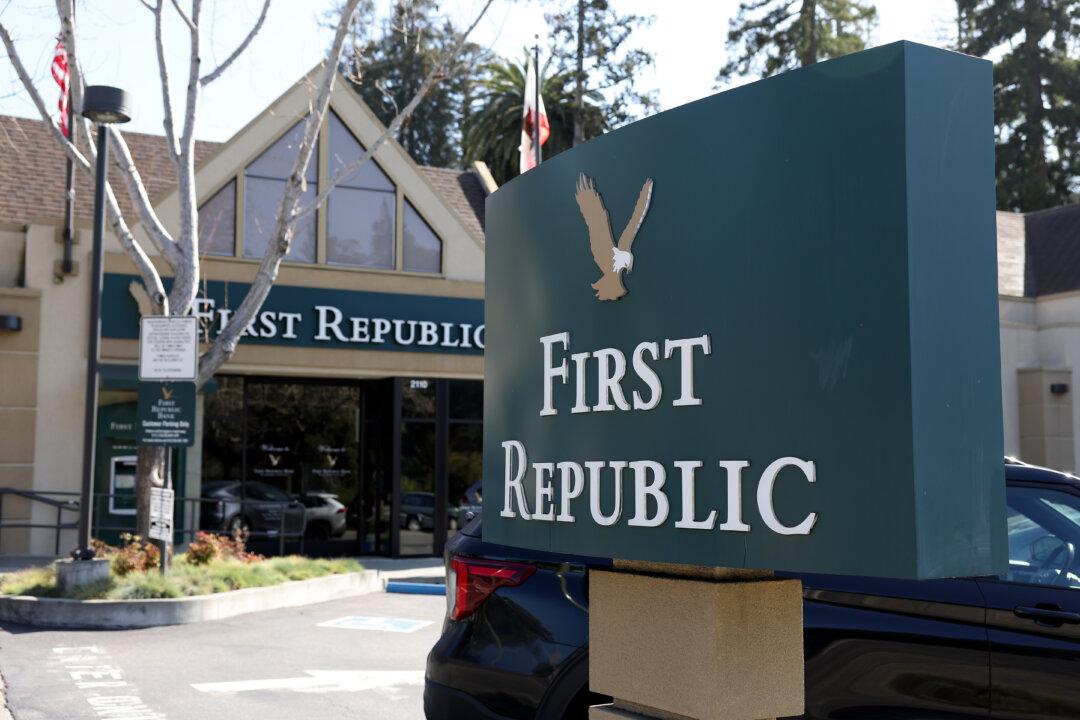First Republic’s shares fell on April 28 following reports that the bank is entertaining the possibility of receivership by the Federal Deposit Insurance Corp. (FDIC).
The struggling regional lender’s stock tumbled by 43 percent in regular trading to $3.51, as trading was halted multiple times throughout the day. The shares continued to fall in after-hours trading.




